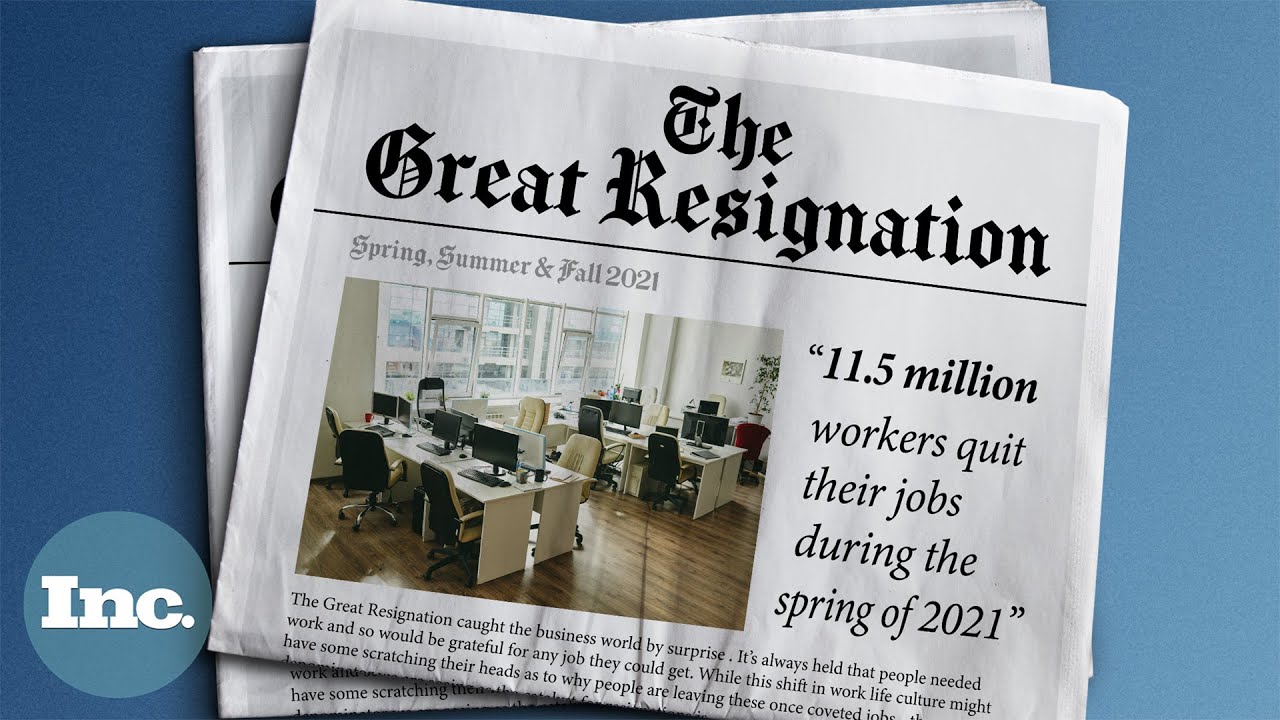
“The surging cost of living and worries about the future is curbing the zeal of people to quit their jobs and join the Great Resignation. “- According to Randstad NV, a global provider of employment services.
Covid-19 spurred on the Great Resignation or the Big Quit in early 2021, record employees voluntarily quit their jobs en masse. The desire for more flexibility has been one of major sticking points of the Great Resignation, as the pandemic popularized employee habits like remote work and working independent hours outside of a traditional 9-to-5.
“A better description of this phenomenon would be a ‘Great Rethink’ in which we are all rethinking our relationship to work and how it fits into our lives,” Ranjay Gulati, Professor, Business Administration, Harvard University and author of the 2022 book Deep Purpose: The Heart and Soul of High-Performance Companies. Economies bouncing back from Covid-19 and work-from-home options have made it easier to quit unappealing positions and look for alternatives, driving up wages. Coined by Anthony Klotz, an organizational psychologist at Texas A&M University in May last year, the Great Resignation, reveals:
In India though, the situation is not this dire, but data speaks that the IT and the tech industry is hiring at unprecedented rates. Not only are people in the workforce changing jobs, but 51% of job seekers are looking for opportunities in industries where they have little or no experience. Possible causes includes:
Financial Express in April 2022, emphasizes India Inc will soon face its moment of truth in the talent market as companies prepare to open offices after a gap of two years. According to a latest report by a global professional recruitment services firm Michael Page:
Nicolas Dumoulin, Senior Managing Director, Michael Page India and Thailand, said, “Individuals are placing an increased importance on company culture, sense of purpose, and leadership ahead of company brands and promotions. Organisations that have great company culture will likely experience a competitive advantage.”
Ana Paula Assis, General Manager, Europe, the Middle East, and Africa, IBM, quotes in Fortune “I think we are starting to realize that the Great Resignation was actually the Great Resignification,” She adds. “People realized during the pandemic that they could really find opportunities that better suited their abilities, their skills, their needs, and people also gained more appreciation for the personal aspects of life—being with the family, being with friends, taking care of themselves.”
Again, Forbes in its article Don’t Blame Covid-19 For The Great Resignation by Steve Lowisz, reads out that the pandemic didn’t cause the Great Resignation. Most businesses were dealing with turnover before Covid-19 hit. The pandemic definitely accelerated the trend—but it’s not the root cause. The Pew Research Center recently surveyed over 900 adults who left a job by choice in 2021, reasoning:
Major findings from PwC Global Workforce Hopes and Fears Survey , one of the largest ever surveys of the global workforce conducted on 52,195 workers in 44 countries and territories which got released on May 24, 2022, states that the Great Resignation will continue apace in the year ahead as one in five workers say they are likely to switch to a new employer in the next 12 months. This survey revealed:
The survey paints a picture of a workforce polarized on a number of dimensions. One of the most important drivers of polarization is skills – with large differences between workers who have highly valued skills and those who do not. 29% of respondents said their country lacks people with the skills needed to perform their job.
Countries with the biggest perceived gap in skills include Thailand, India and Brazil.
CRUX: PwC said in a press release that higher pay, more job fulfillment and wanting to be “truly themselves” at work are the factors pushing workers to change jobs.
The Great Resignation — or Great Reshuffle — started with employees wanting to control how they work. And now with the Great Rehire, recruiters and talent acquisition management teams need to approach filling job openings differently than before the pandemic. Employees want to continue to have control and will put a focus on purpose and meaning in their careers. They will prioritize companies that provide benefits to both global and local societies, according to a report by Harvard Business Review.